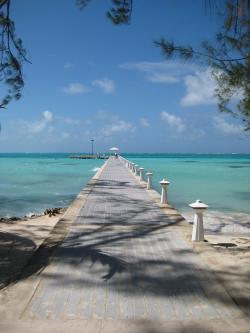jks
About
- Username
- jks
- Joined
- Visits
- 29,959
- Last Active
- Roles
- Member, Administrator, Moderator
- Points
- 212
- Location
- Tauranga, New Zealand RF82ci
- Callsign
- ZL4VO/KF6VO
- Additional information
- KiwiSDR support email: support@kiwisdr.com
Reactions
-
release v1.72/73: WSPR decoder improvements, control panel hide button
Strong signals often cause weaker "images" at different frequencies in the WSPR display. The underlying cause is still not understood. But now spots with the same callsign will only have the strongest one uploaded to prevent polluting the wsprnet.org database. You'll still see multiple spots in the WSPR viewer because they are displayed incrementally as they are decoded. But at the end only the strongest non-duplicates will be uploaded.A multi-pass scheme has been implemented to help decode weaker signals. After the first pass any remaining signals will be rerun through the decoder with increased effort parameters (that take more decoding time) until the full two minute decoding interval is exhausted. Previously decoding was stopped after only one pass.The main KiwiSDR control panel at the bottom right of the window finally has a "hide" button at the top right like the other panels. This should be helpful for iPad and other mobile device users. -
release v1.72/73: WSPR decoder improvements, control panel hide button
Strong signals often cause weaker "images" at different frequencies in the WSPR display. The underlying cause is still not understood. But now spots with the same callsign will only have the strongest one uploaded to prevent polluting the wsprnet.org database. You'll still see multiple spots in the WSPR viewer because they are displayed incrementally as they are decoded. But at the end only the strongest non-duplicates will be uploaded.A multi-pass scheme has been implemented to help decode weaker signals. After the first pass any remaining signals will be rerun through the decoder with increased effort parameters (that take more decoding time) until the full two minute decoding interval is exhausted. Previously decoding was stopped after only one pass.The main KiwiSDR control panel at the bottom right of the window finally has a "hide" button at the top right like the other panels. This should be helpful for iPad and other mobile device users. -
How do you use your SDR
-
Help us test new feature: "auto add router NAT rule"
WA2ZKD/KA7U: Interesting your routers require you to enable UPnP. Security feature I guess. Kinda defeats the purpose of lessening the setup burden.ic8pof: If you are seeing the message "NAT port mapping in local network firewall/router created" in the log then the next time you go to the network tab after restarting the server you should get the green message that says:Automatic add of NAT rule on firewall / router: succeeded
You won't see the message immediately after changing the button from "no" to "yes". You have to restart the server first.UR5VIB: excellent point about router reboots. I had not considered that.G8JNJ: I'm not sure what you mean by "separate firewall rule didn't seem to load". The Kiwi only sends a single NAT rule (port forwarding) via UPnP. No other firewall related rules if those are required by your router. You would still have to configure those manually. -
ipad iOS bandwidth adjustment [v1.67 touch events added]
In the v1.67 release I added some touch event support. So now if you zoom in sufficiently you should be able to touch-drag on the passband edges to change the bandwidth. You can also drag across the frequency scale to move the passband smoothly. tapping anywhere will set the frequency. Dragging outside the frequency scale (waterfall, spectrum, etc.) will shift the waterfall.It doesn't work perfectly but it's a big improvement. Tested on iPad, iPhone, Android. -
ipad iOS bandwidth adjustment [v1.67 touch events added]
In the v1.67 release I added some touch event support. So now if you zoom in sufficiently you should be able to touch-drag on the passband edges to change the bandwidth. You can also drag across the frequency scale to move the passband smoothly. tapping anywhere will set the frequency. Dragging outside the frequency scale (waterfall, spectrum, etc.) will shift the waterfall.It doesn't work perfectly but it's a big improvement. Tested on iPad, iPhone, Android. -
Help us test new feature: "auto add router NAT rule"
WA2ZKD/KA7U: Interesting your routers require you to enable UPnP. Security feature I guess. Kinda defeats the purpose of lessening the setup burden.ic8pof: If you are seeing the message "NAT port mapping in local network firewall/router created" in the log then the next time you go to the network tab after restarting the server you should get the green message that says:Automatic add of NAT rule on firewall / router: succeeded
You won't see the message immediately after changing the button from "no" to "yes". You have to restart the server first.UR5VIB: excellent point about router reboots. I had not considered that.G8JNJ: I'm not sure what you mean by "separate firewall rule didn't seem to load". The Kiwi only sends a single NAT rule (port forwarding) via UPnP. No other firewall related rules if those are required by your router. You would still have to configure those manually. -
Location Error when logging in [geolocation database errors]
Oh, you mean the geo-location for your ip address that appears in the status window at the lower left. Yes, this happens on occasion. The Kiwi software has to connect to an external site to translate the ip address of the visiting user to their physical location. Occasionally the database of these external sites seem to get messed up. It should fix itself in a day or so. -
GPS Admin screen
v1.60, to be released tomorrow, will fix a GPS bug that I finally understood today. Apparently, since v1.38 the GPS acquisition process has not been restarting after active users disconnect like it's supposed to. That will lead to the situation where the admin GPS page says "acq yes" (instead of "acq paused"), but there is no refresh icon shown in the "acq" column next to an incrementing PRN as is typically the case. The satellites that are already acquired and being tracked will be be fine until they drift out-of-range and are dropped. So eventually the GPS page will show nothing even though new satellites should be getting acquired. -
GPS Admin screen
v1.60, to be released tomorrow, will fix a GPS bug that I finally understood today. Apparently, since v1.38 the GPS acquisition process has not been restarting after active users disconnect like it's supposed to. That will lead to the situation where the admin GPS page says "acq yes" (instead of "acq paused"), but there is no refresh icon shown in the "acq" column next to an incrementing PRN as is typically the case. The satellites that are already acquired and being tracked will be be fine until they drift out-of-range and are dropped. So eventually the GPS page will show nothing even though new satellites should be getting acquired.




